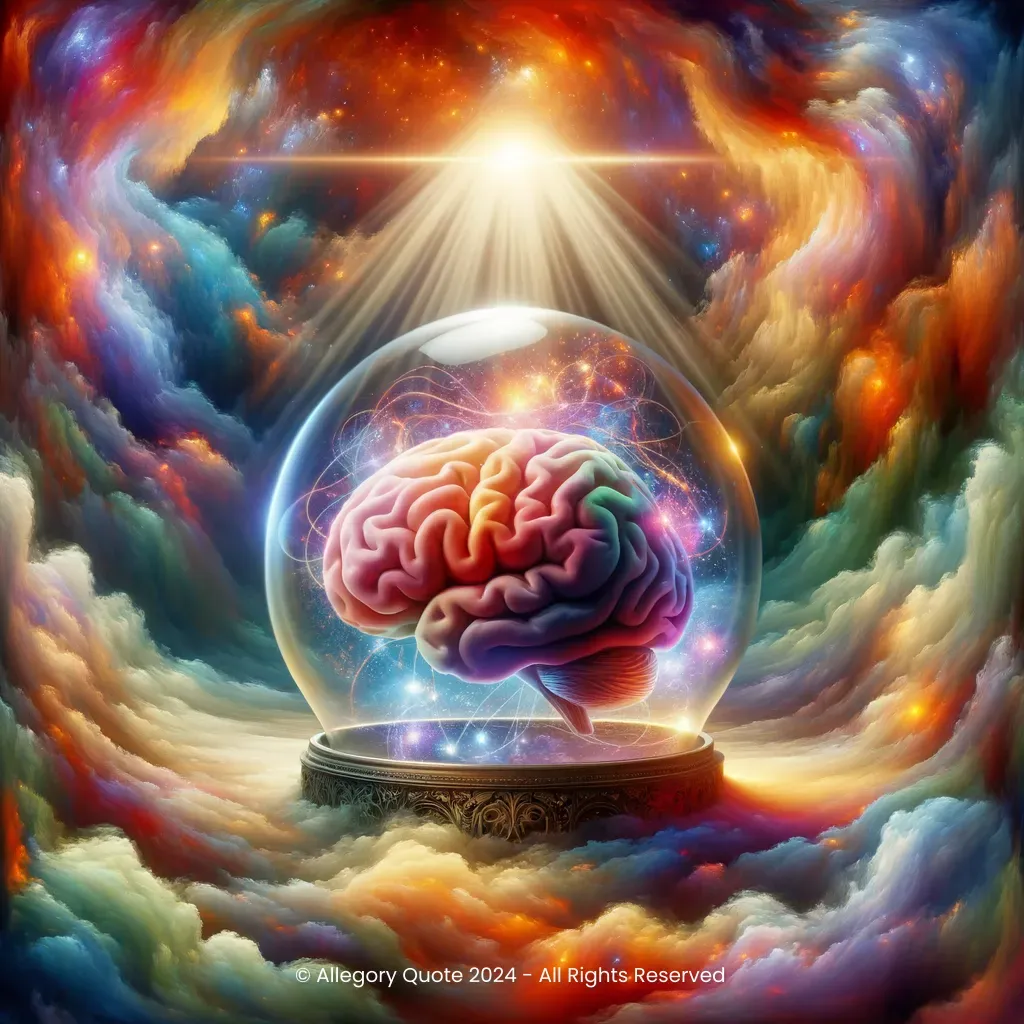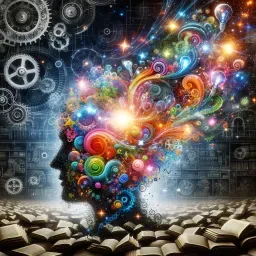”The difference between genius and
stupidity is that genius has its limits“

0
0
0
0
- Meaning
- The quote implies a philosophical and psychological observation on human intelligence and foolishness. Philosophically, it reflects on the nature of intelligence, suggesting that even the greatest minds recognize limits to understanding and capability. Stupidity, in contrast, is often unrestrained, leading to reckless behavior and decisions devoid of insight. This duality speaks to human experience, acknowledging our strengths and weaknesses.
- Allegory
- In the allegorical image, the depiction of a bright brain symbolizes genius, showing it encased in a transparent glass dome to represent its limits and the containment of thoughtful ideas. The chaotic swirling colors surrounding the dome represent the unrestrained nature of stupidity, highlighting the contrast between structured intelligence and free-ranging foolishness. The rays of light breaking through the dome symbolize those rare moments of clarity and creativity that emerge within the confines of reason, promoting a sense of reflection on the duality of human thought.
- Applicability
- This phrase can be applied to personal life by encouraging individuals to recognize their limitations and appreciate the value of intelligence while being wary of mindless actions or decisions. It teaches humility and the importance of critical thinking, prompting one to seek knowledge and understanding rather than acting without thought.
- Impact
- The impact of this phrase has been significant in popular culture, often quoted in debates about intelligence, decision-making, and societal issues. It has inspired discussions around the consequences of ignorance and the necessity of education and critical thinking.
- Historical Context
- The exact origin date of this quote is uncertain, but it has circulated widely since the 20th century, possibly in the realm of popular culture. The historical context reflects a time of rapid scientific advancement and philosophical inquiry, during which such observations about human behavior became more relevant.
- Criticisms
- Some criticisms of the phrase point out that it might oversimplify the complexities of intelligence and stupidity. Some argue that genius can also fail spectacularly, just as some acts of stupidity can produce unexpected brilliance. Others might refute the quote by emphasizing the potential for growth and learning inherent in all people, suggesting that limits can be expanded.
- Variations
- Variations of this phrase exist in different cultures, often conveying a similar idea about the unchecked nature of foolishness compared to the more restrained pursuit of wisdom or intelligence. For example, in many Eastern philosophies, there's a recognition of the folly of ego, paralleled in sayings about wisdom and humility.
-

You never fail until you stop trying.
-

Strive not to be a success, but rather to be of value.
-

Education is what remains after one has forgotten what one has learned in school.
-

The true sign of intelligence is not knowledge but imagination.
-

Weakness of attitude becomes weakness of character.
-

A person who never made a mistake never tried anything new.
-

If you can't explain it simply, you don't understand it well enough.
-

The only limit is your soul.
-

Our battered suitcases were piled on the sidewalk again; we had longer ways to go. But no matter, the road is life.
-

There are no accidents.
-

I live in that solitude which is painful in youth, but delicious in the years of maturity.
-

Anyone who has never made a mistake has never tried anything new.
No Comments